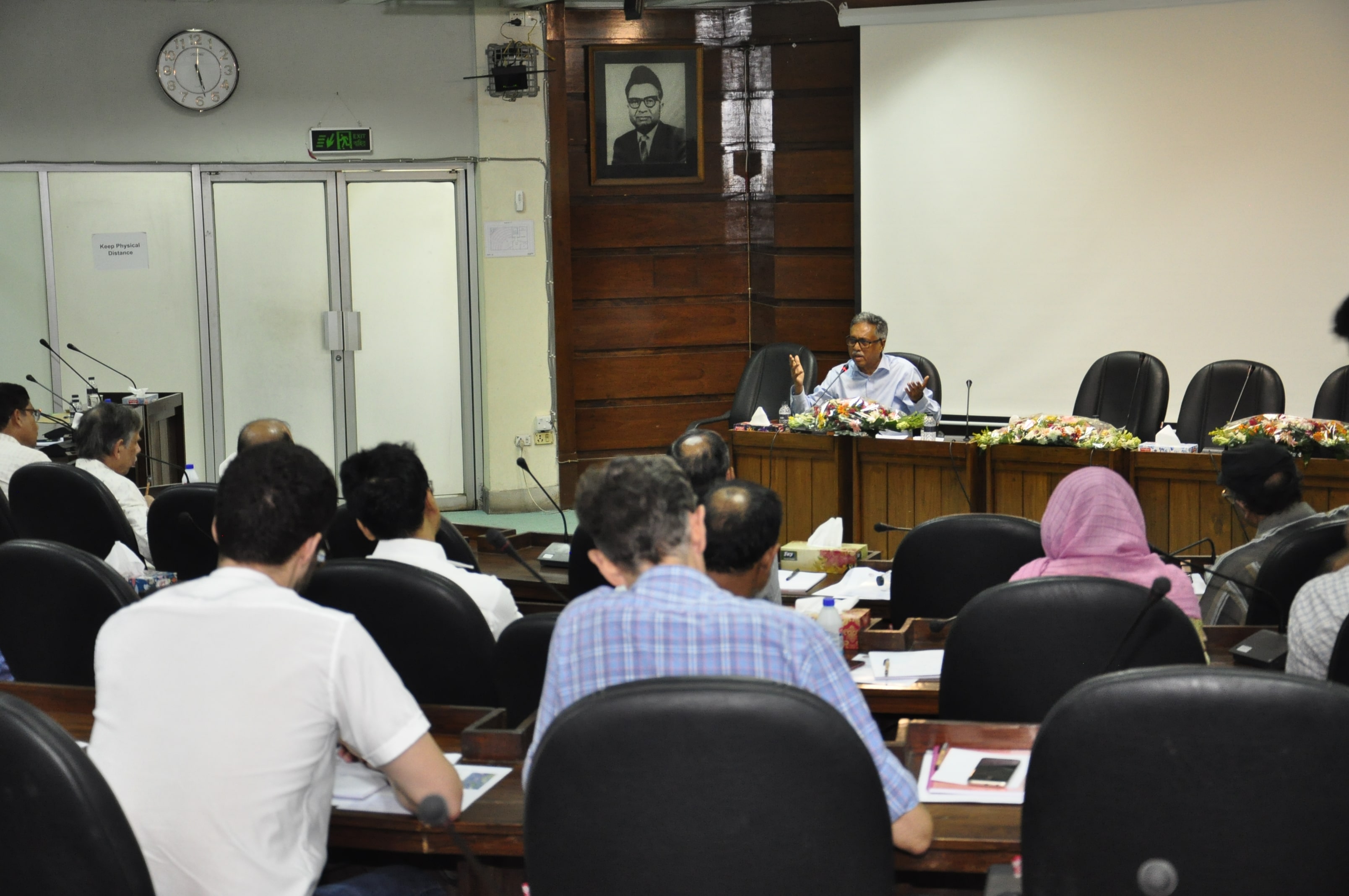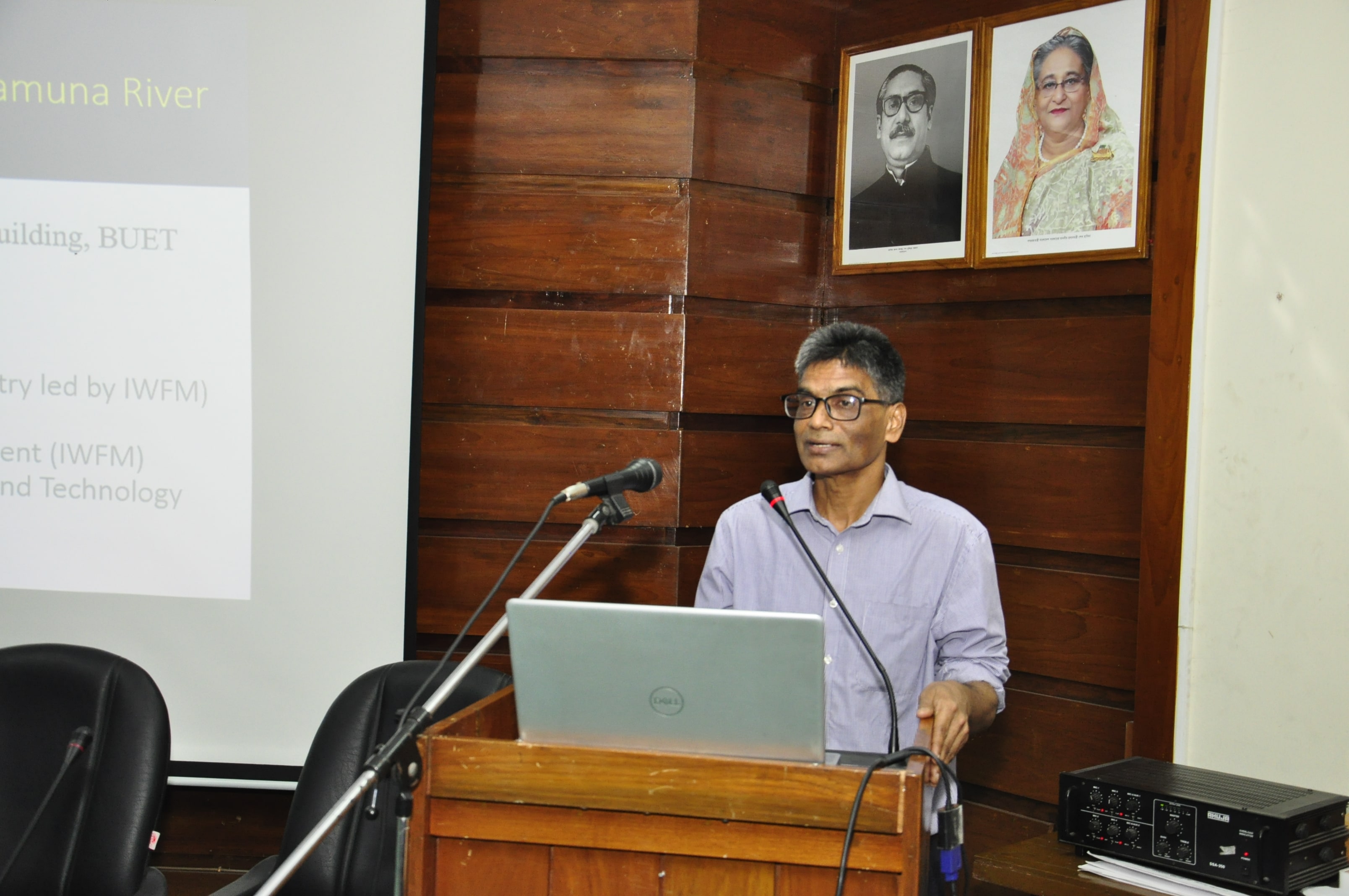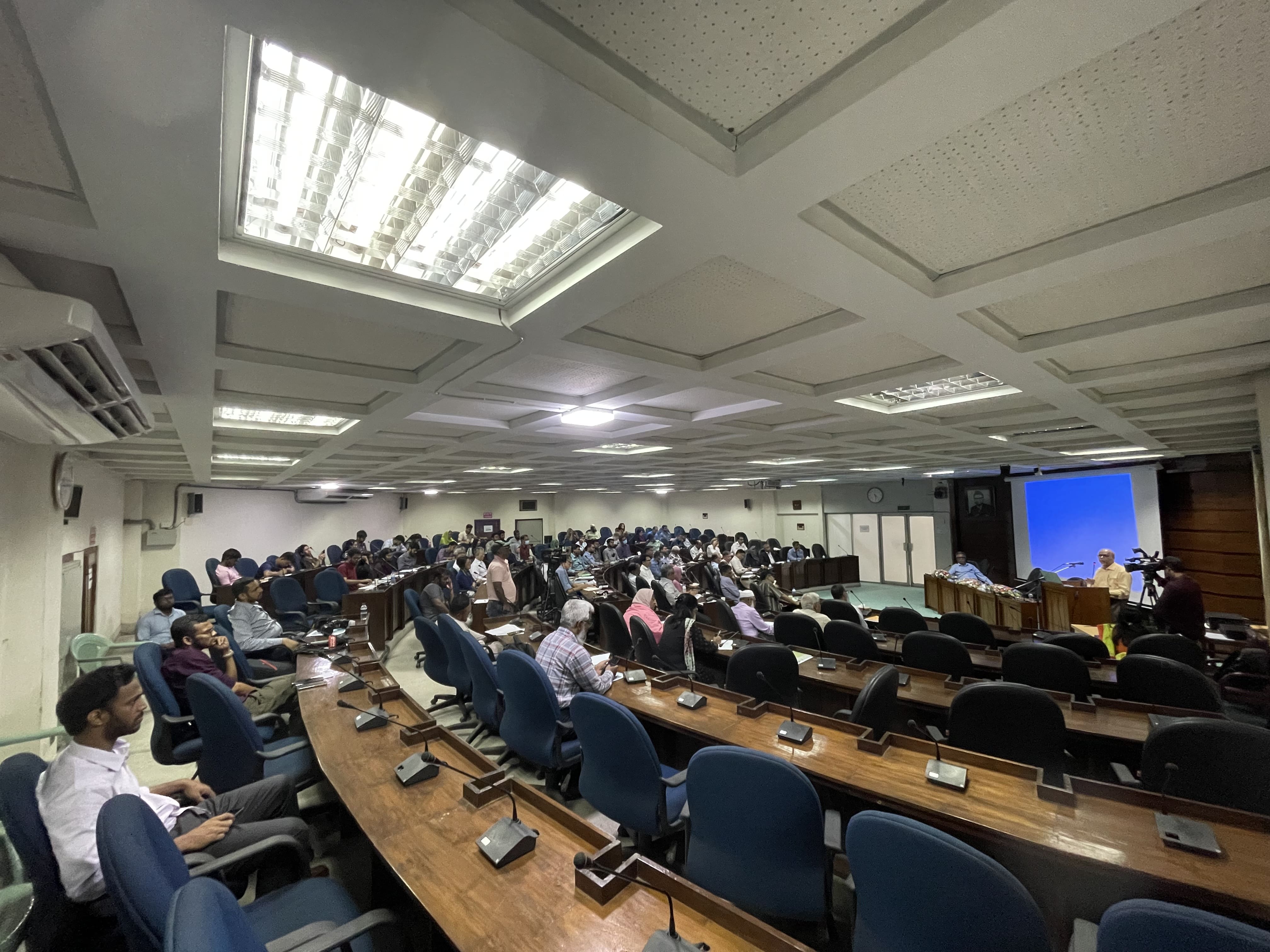Date: May 16, 2023
Institute of Water and Flood Management (IWFM) arranged a workshop titled – ”Managing the Future of the Brahmaputra Jamuna River Systems in Bangladesh.” on the 13th of August 2023. The Director in Charge of IWFM, Prof. Anisul Haque, delivered the welcome speech before handing over the floor to Prof. Munsur Rahman, who delivered a lecture on the future of Brahmaputra-Jamuna River Management. The session was chaired by Prof. Ainun Nishat, Professor Emirates of BRAC University and Former Director of IWFM, BUET.

Prof. Munsur Rahman started his presentation by acquainting the audience with the workshop’s purpose: to identify the current information and knowledge gaps related to the river and anticipate future insights to manage the river effectively. He highlighted past efforts to materialize the opportunities with encountering challenges in managing the Brahmaputra-Jamuna River system in Bangladesh. In particular, he discussed the bend-node (bifurcation-confluence) concept from the Flood Action Plan (FAP) developed after the devastating floods of 1987 and 1988 to implement systematic riverbank management. The workshop also focused on river corridor concepts, pilot projects, and existing research aimed at managing the river system’s future.

Two schools of thought are currently advancing within the river corridor concept: (1) narrowing down the wide braided corridors and converting them into a prescribed meandering planform or (2) maintaining the natural braided corridor and stabilizing some bars within the corridor. He put a strong emphasis on carrying out a comprehensive investigation to assess the technical feasibility of both approaches on a long-term basis. He explained the unique braiding characteristics of Jamuna and presented the existing morpho-dynamic and eco-dynamic opportunities and challenges in managing the Brahmaputra-Jamuna River corridor. He also discussed the long-term morpho-dynamic and eco-dynamic implications of each proposed corridor concept for managing the river system’s future. The long-term response included the relationship between high bed degradation and high velocity, the formation of large bars, and the loss of classical braided features of the river. Professor Munsur and his team presented several recommendations, including:
• Keeping provision of critical habitat dynamics associated with different levels of bars and channels.
• Avoiding intervention to reduce the width or modify planforms from braided to meandering or stabilizing braided bars.
• Establishing eco-friendly, nature-based solutions in addition to the existing conventional approaches in managing the future of the river systems against flooding and erosion.
• Avoiding alteration of the inherent characteristics of the river system through future management interventions.
Following Prof. Rahman’s lecture, Mr. Mahfuzur Rahman, the former Director General of the Bangladesh Water Development Board (BWDB), shared his professional experiences managing the Brahmaputra Jamuna River. He emphasized the importance of formulating a master plan to manage the Jamuna. Later, Prof. Abdul Matin shared his perspectives on river engineering in managing the Brahmaputra-Jamuna corridor. After that, Prof. Rezaur Rahman from IWFM took the stage and shed light on the socio-economic aspects of Brahmaputra-Jamuna management. He touched upon the topic of dolphin habitats in the river Jamuna. He strongly advocated against any interference or channelization of the river, urging to let the river flow in its natural course.
The open discussion session was preceded by the chair, Prof. Ainun Nishat, during which all guests and experts shared their opinions on the topic. The attendees expressed their concern about biodiversity and recommended conducting further research, avoiding excessive encroachment on the river, analyzing past failures, and finding the most suitable technology for managing the river. Notably, Prof. Dr. Shahjahan Mondal brought up various concerns related to the social and ecological consequences, appropriate technology implementation, climate change, flood occurrences, and minimal intervention required to manage the Jamuna River. Professionals from the Bangladesh Water Development Board (BWDB) proposed implementing a detailed master plan in managing the river systems. However, some speakers raised concerns regarding the ecological issues that may arise in managing the river, Jamuna. Prof. Mashfiqus Salehin, from the Institute of Water and Flood Management (IWFM), proposed that it is crucial to involve all relevant stakeholders in reaching a consensus on how to effectively address the challenges related to the management of the Brahmaputra-Jamuna River systems in Bangladesh. He emphasized the importance of working collaboratively towards a solution that considers the various social, ecological, and technological aspects involved. Finally, the Workshop Chair, Prof. Ainun Nishat, gave his concluding speech, where he mentioned the Jamuna River stands as a one-of-a-kind braided system, unparalleled and incomparable to any other river found across the globe. It should be allowed to maintain its natural course. He also emphasized the importance of policymakers understanding its behavior and taking appropriate measures that ensure preservation of its diverse ecological characteristics.
